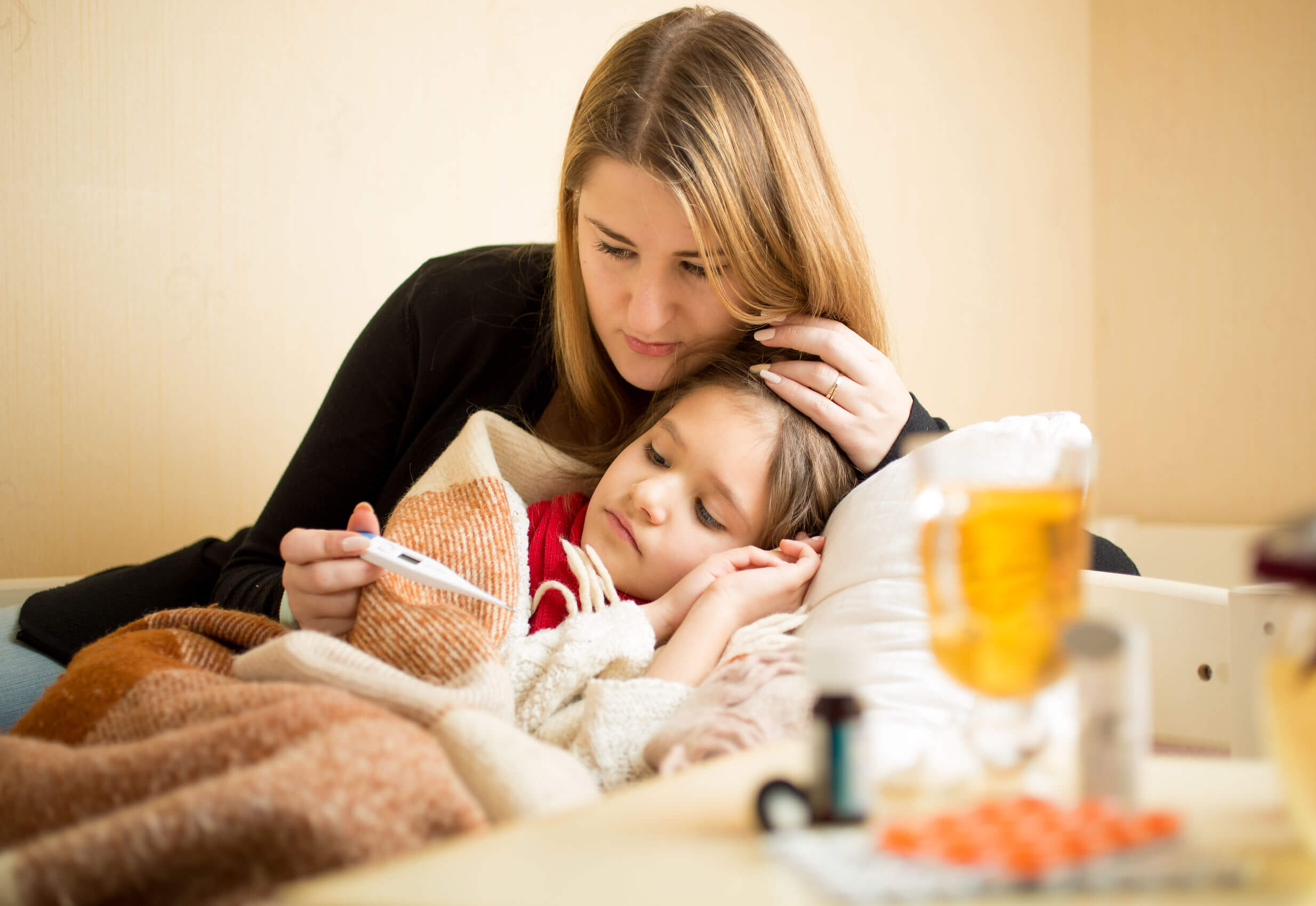Last year’s flu season was historic in its severity partially because of the subtypes of flu that were circulating and partly because last year’s vaccine was only 40% effective. The lack of effectiveness did not come close to the failures of the 2004 to 2005 season where the vaccine was only 10% effective, or the 2014 to 2015 season where the vaccine was only 19% effective. In an average year, flu deaths might reach 30,000 – last year they were over double with an estimated 80,000 people dying from influenza.
The flu is no joke, especially to vulnerable populations such as those with suppressed immune systems, the elderly, and little children.
When Can Kids Get a Flu Vaccine?
The CDC says that children can have flu shots when they are as young as six months of age. A nasal spray vaccine is available for healthy children who are at least two years old. Of course, there are side effects to the flu shot that include soreness and inflammation at the injection site along with a low-grade fever, muscle aches, and headache. Reactions to the nasal spray can consist of a sore throat, runny nose, cough, and fever.
More extreme reactions to the nasal vaccine may include wheezing and vomiting. However, it can take as long as 14 days before the vaccine becomes fully effective, and at that time your child can catch the flu.
How Can I Get the Fever Down?
When your little one comes down with the flu, it can be terrifying. However, not many people know that fever in children is there for a reason. Fever helps to fight infections and by reducing it too early, you may, in fact, be prolonging the infection.
When it comes to healthy children who have not recently had surgery, chemotherapy, and who are not immunocompromised, what you should do depends on the degree of fever in the age of the child.
- 0 to 3 months: If the fever is higher than 100.4, call your pediatrician in Phoenix. Call even if there are no symptoms other than the fever.
- 3 to 6 months: For fever under 102°, make sure that your child hits plenty of rest and drinks plenty of fluids. For fever above 102°, or if your child is lethargic, irritable, or obviously uncomfortable, it may be time for the urgent care or visit to your pediatrician.
- 6 months to 17 years: For a fever over 102°, children over six months of age can have acetaminophen or ibuprofen as appropriate to their age. Infants and children should never be given aspirin to reduce the fever. For fevers under 102°, rest and hydration is strongly recommended.
When your child is sick with the flu, contact a pediatrician in Phoenix. The doctors at Pediatrix are specialists in the area of pediatric medicine. They understand how different children are from adults, and treat them according to the latest scientific recommendations. Fever in children can be terrifying. Get the right knowledge you need to proceed and get your child well. Request an appointment today.





